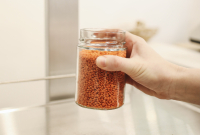Support strong Canadian climate journalism for 2025
Young people across Ontario channelled pent-up energy in 2022 into the summer’s provincial election, projects fighting food or housing insecurity and other efforts to improve the world.
This past year wasn’t an easy one for young people, many of whom faced precarious work or returned to classrooms after two years of online learning amid the social and political upheaval of the COVID-19 pandemic.
Told they could play high-contact sports and musical instruments in February, students in the Toronto District School Board were asked in April to wear masks inside schools again as a sixth wave of infections loomed.
By November, classrooms across the province were shuttered as a post-election labour dispute between education workers and Premier Doug Ford’s re-elected Progressive Conservatives turned into a constitutional showdown.
That fight over pay and working conditions was ultimately resolved without extra funding for schools dealing with rising violence and limited resources. The government remains in closed-door talks with several unions representing teachers that are expected to drag on well into 2023.
Meanwhile, the existential threat of climate change continues to hang heaviest over those who will live longest with its escalating impacts.
On that front, young people notched victories and made progress, including seven youth (and their backers) who, after much delay and distraction, got their days in (virtual) court to argue the Ford government’s failure to act on climate change is a direct violation of their constitutional rights to life, security and equality.
Justice Marie-Andrée Vermette’s decision in the historic case is expected sometime in 2023 and could have huge implications on climate policy if it points to a legal duty to protect future generations from environmental harms knowingly caused by collective human action.
Throughout the year, some Toronto teens managed to work on a male contraceptive pill, develop a system to deliver remote renewable energy and offer solutions to big global problems like India’s air pollution.
One University of Toronto graduate returned to his homeland of Ukraine to report on the Russian invasion, while others took on less dramatic but equally meaningful work, such as tracking the city’s wastewater to monitor COVID-19 levels, documenting Black food sovereignty efforts or helping other young people experience the urban outdoors.
Future Majority, meanwhile, tried to amplify the youth voice in the months leading up to the provincial vote, but the advocacy group had to admit its demographic’s concerns — climate change, mental health, housing and the cost of living — were largely ignored.
Its members kept at it, though, turning to municipal processes that can lead to change, such as in Mississauga, where Kaneera Uthayakumaran and others want to ensure council designs and adopts strong green development standards, which are expected by June 2023.
A teen candidate didn’t win in his Eglinton-Lawrence riding, but he did manage to engage large numbers of his fellow citizens in his effort to push grassroots civic debate and solutions.
And frosh week returned — for real this time — as a sign perhaps that some things can get back to what we used to think was normal.
Morgan Sharp / Local Journalism Initiative / Canada’s National Observer






Comments